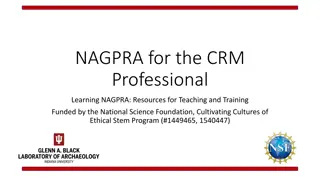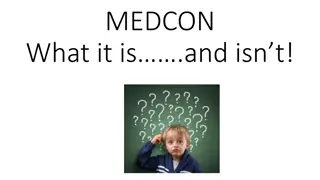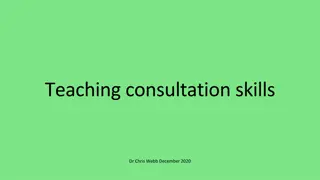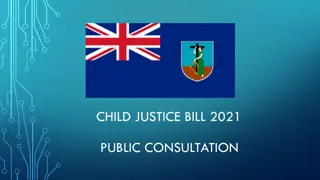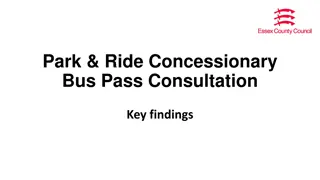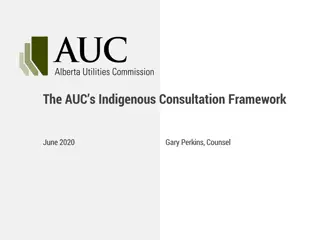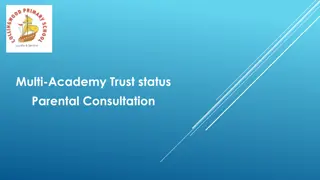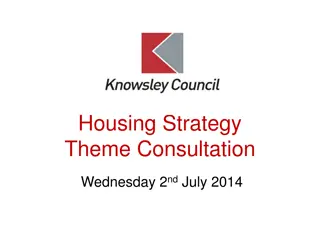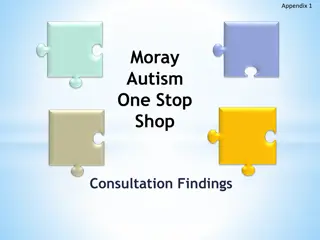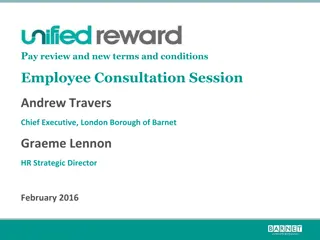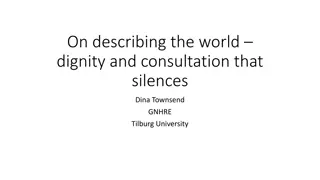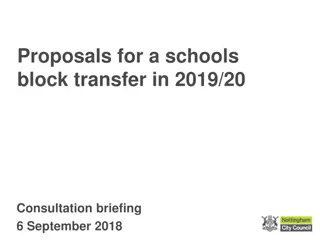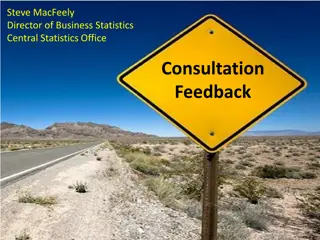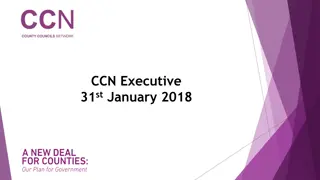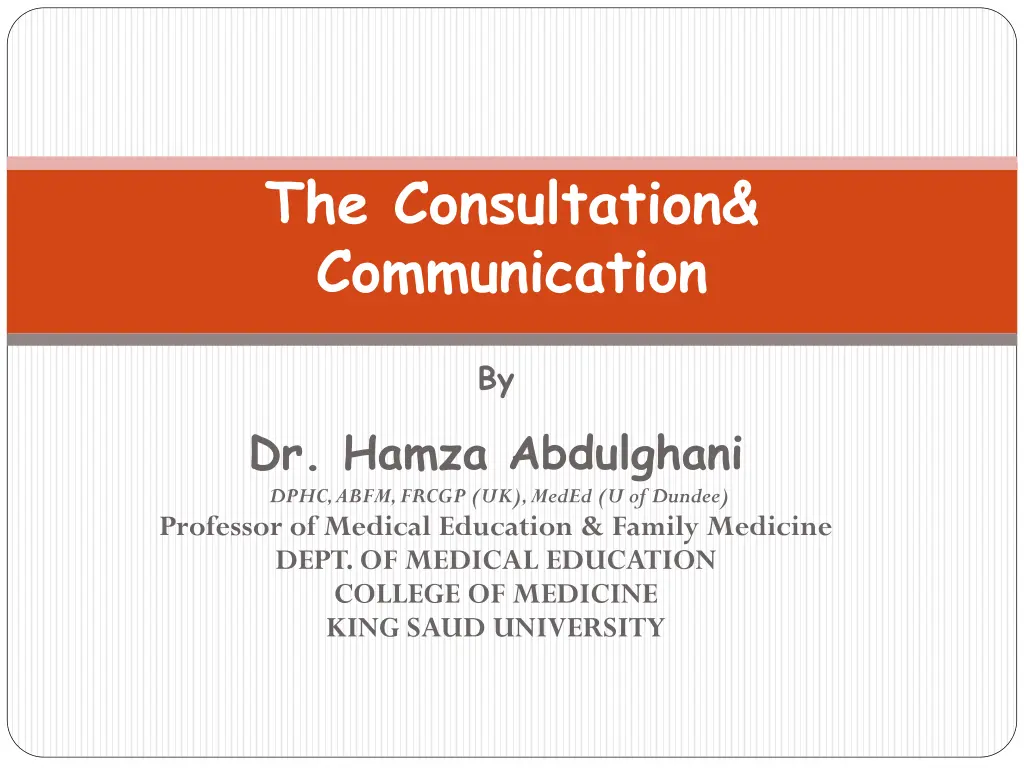
Improving Consultation and Communication Skills in Healthcare Settings
Explore the benefits of effective communication skills in healthcare consultations, including improved diagnostic accuracy, patient understanding, treatment adherence, and overall health outcomes. Learn about different models of consultation and ways to enhance communication skills for better patient outcomes.
Download Presentation

Please find below an Image/Link to download the presentation.
The content on the website is provided AS IS for your information and personal use only. It may not be sold, licensed, or shared on other websites without obtaining consent from the author. If you encounter any issues during the download, it is possible that the publisher has removed the file from their server.
You are allowed to download the files provided on this website for personal or commercial use, subject to the condition that they are used lawfully. All files are the property of their respective owners.
The content on the website is provided AS IS for your information and personal use only. It may not be sold, licensed, or shared on other websites without obtaining consent from the author.
E N D
Presentation Transcript
The Consultation& Communication By Dr. Hamza Abdulghani DPHC, ABFM, FRCGP (UK), MedEd (U of Dundee) Professor of Medical Education & Family Medicine DEPT. OF MEDICAL EDUCATION COLLEGE OF MEDICINE KING SAUD UNIVERSITY
Objectives Define the Consultation & Communication Discuss the benefits of good communication skills Identify why & when pts Decide to consult Discuss the Model of consultation -Stott & Davis -Roger Neighbour -Pendleton Identify how we can improve consultation skills Summary Perform well in any clinical examination
The Consultation& Communication Part-One Introduction ( a case) Components of communication skills Decision of consultation Model of consultation -Stott & Davis -Roger Neighbour -Pendleton Part-Two Preparation of second session
Benefits Goodcommunication skills : Diagnostic Accuracy Pts understanding & Information retention Increase adherence to treatment Patients adjust better psychologically Allow patients to share in the decision making. Pts are more satisfied with their care Greater job satisfaction and less work stress (Roter 1987, Betakis 1991, Stewart 1995)
Effect on Health Outcomes Reduction of anxiety. Reduction of psychological distress. Pain relief. Symptom resolution. Mood improvement. Reduction of high blood pressure. (Stewart 1995).
Consultation Skills Communication Skills: Clinical skills: Examination Verbal e.g Non-verbal e.g Procedures
Verbal & Non-verbal Communication Information is in the words: 1% Information is in the tone of voice: 39% Information is in the gestures & expression: 60%
Patient-Centered Care Patients as partners Involve them in decision making Enlist their sense of responsibility for their care Respect their individual values and concerns
Effective Communication Skills (Models)
DEFINITION?? The occasion when, a person who is ill, or believes himself to be ill, seeks the advice of a doctor whom he trust. (Wright &Macadam)
DEFINITION?? It is a goal-seeking activity in which the goals of one party may or may not be clear to other party. (Byrne & Long)
CONSULTATION IN PHC CONSULTATION IN PHC Vs Vs CONSULTATION IN HOSPITAL CONSULTATION IN HOSPITAL
CONSULTATION SKILLS Involve: * * * * Interviewing skills History taking skills Physical examination skills Problem-solving skills
What people do about their symptoms?
No action Self care only Self care plus GP visit GP visit only__________ Hospital __ 16% 63% 12% 8% 1% What people do about their symptoms??
WHY PTS. CONSULT THEIR DOCTORS?? Symptoms of illness perceived by patient Nature of symptoms Anxiety housing, environment stress Personality of patient, anxiety, Attempts to resolve anxiety Education, Family and community support Decision to consult Health beliefs, expectation of doctor, Accessibility (appointment system, receptionists, etc) Consultation Factors influencing the decision to consult a doctor
Models of Consultation 1- Stott & Davis 3- Roger Neighbour 4- Pendleton
Stott and Davis Stott and Davis
A Management of presenting problem B Modification of help-seeking behaviors C D Management of continuing Opportunistic health problems promotion (Stott and Davis) (Stott and Davis)
NEIGHBOURS 5 CHECKPOINTS (Roger Neighbour The Inner Consultation ) 1. CONNECTING. 2. SUMMARISING. 3. HANDING OVER. 4. SAFETY NETTING. 5. HOUSEKEEPING.
PENDLETONS MODEL Seven checklist The define the reasons for the patient s attendance 1. Idea, concern & expectation 2. Time management 1.
PITFALLS in Communication
Blocking behavior Interrupting Offering advice and reassurance before the main problems have been identifiedl Lack of concern Attending to physical aspects only Switching the topic
Reasons for patients not disclosing problems Belief that nothing can be done Reluctance to burden the doctor Desire not to seem pathetic or ungrateful
Reasons for patients not disclosing problems (Contn ) Concern that it is not legitimate to mention them Doctors' blocking Worry that their fears of what is wrong with them will be confirmed
IMPROVING CONSULTATION SKILLS
IMPROVING CONSULTATION SKILLS Clinical reasoning & Problem Solving Constant Learning and Practice Feed Back: - Self monitoring/Peer review - Role play Audio-visual technique
The Conclusion 1.Consultation skills are learnt behavior. 2.For beginner a model to be kept in mind 3.The consultation should be a discussion and sharing of ideas between two experts. 4.Each consultation should be tailored to fit the different need of each patient. 5.Patient-centered consultation. Vs Doctor-centered consultation.
Communication Message Sender Receiver
Take Home Message To Be a Good Doctor, we Have to Be a GOOD COMUNICATOR


